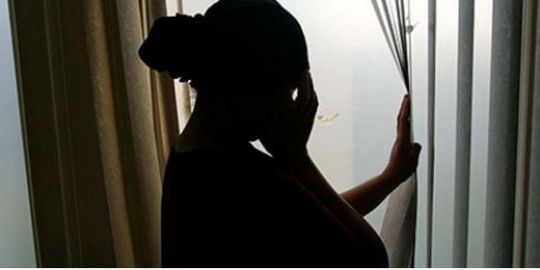Corrective Rape in South Africa

 Corrective Rape
Corrective Rape
Corrective rape was coined in the early 2000s by human rights non-governmental organizations, in reaction to the number of rape crimes committed against South African lesbians. The term defines the criminal practice whereby homosexual individuals are raped by persons of the opposite sex in order to “cure” them from their sexual orientation. In Gender Equality in South Women and African Economic Development this practice takes place mostly against Lesbians and at times occurs under the supervision of members of families or local communities. The 2008 report by the NGO ActionAid and the South African Human Rights Commission, calls for the creation of legislation targeting hate crimes, in particular, corrective rape. The report states that these crimes are “unrecognized by the state and unpunished by the legal system”.Lesbians Subjected to Corrective Rape in South Africa, Telegraph.
In South Africa
In 2008, Triangle, a gay rights organization, said they collected up to 10 cases of corrective rape a week, whilst research showed that 86% of black lesbians in the Western Cape lived in the fear of sexual assault. In 2008, Eudy Simelane, a football player for the South Africa Women’s National Team and vocal LGBT activist, was gang raped and stabbed 25 times in KwaThema, Gauteng. Two men were convicted but the court refused to see the murder as a consequence of her sexual orientation. The same year, South Africa’s national prosecuting authority released a statement declaring that, “While hate crimes – especially of a sexual nature – are rife, it is not something that the South African government has prioritised as a specific project.” More recently, on the 24th of April 2011, the body of Noxolo Nogwaza, a 24 years old lesbian, was found heavily mutilated in Kwa Thema, east of Johannesburg. On the 5th of May 2011, a 13 years old adolescent lesbian was raped in Pretoria. Criticized for its complacency with corrective crimes, the South African government released a statement beginning of May 2011, creating a group which will propose measures to fight against these agressions (sensibilization campaigns, the installement of refuges for homsexuals in danger, etc)En Afrique du Sud des lesbiennes sont violees pour etre gueries, Le Monde Considering the attitude of the South African government towards these hate crimes until recently, the extent to which the formation of group will promote successful change is subject to scrutiny.
Suppression of South African Lesbians
Moving beyond…?
The violation of the physical integrity of individuals is evident. As the Gender Index noted in 2006, “Rape is a very serious problem in South Africa. According to Amnesty International, rape affects 120 per 100 000 inhabitants, the highest recorded incidence in the world; yet other estimates suggest that even this figure represents only one-third of actual cases. The law prohibits both rape and spousal rape. The impact of the legislation, however, is relatively low because judges often impose only light sentences – sometimes using the victim’s behaviour or her relationship with the rapist as a pretext. Sexual harassment is prohibited by law, but remains very common.”Gender Index South Africa Considering that corrective rape is a lingering issue in South Africa, the international organization Avaaz has created an online petition, “South Africa: Stop Corrective Rape” which has collected 926,282 signatures. The petition also includes the penal recognition of hate crimes.Avaaz Corrective Rape Petition On the grounds, the Luleki Sizwe organization takes a more bottom up approach, catering to the needs of victims and trying to change the negative image of lesbian women in South African communities. Their aim is to raise awareness, through education, discussions and various forms of art.Luleki Sizwe.
References
- Lesbians Subjected to Corrective Rape in South Africa, Telegraph
- En Afrique du Sud des lesbiennes sont violees pour etre gueries, Le Monde
- Gender Index South Africa
- Avaaz Corrective Rape Petition
- Luleki Sizwe


